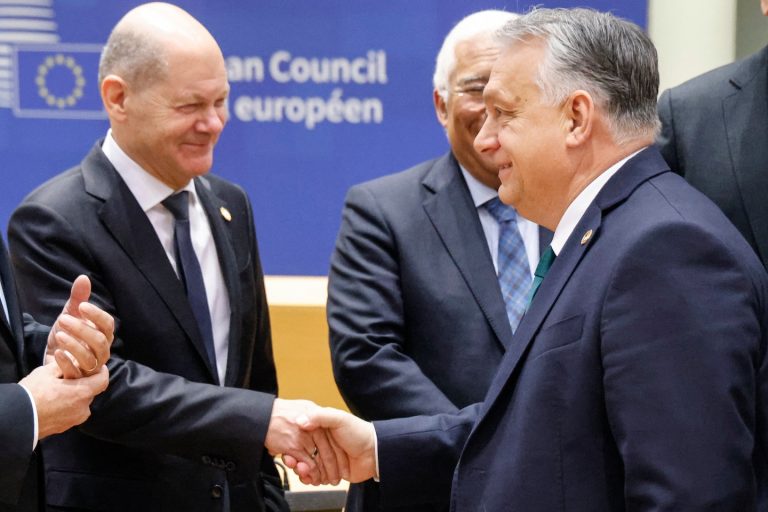The agreement represents a victory for European Union leaders who are increasingly struggling to work with Orban on key issues, especially Russia's war in Ukraine, and is good news for Ukraine, which suffers from a severe shortage of ammunition and money.
“This provides stable, long-term and predictable financing for UkraineEuropean Council President Charles Michel said when announcing the deal.
He wrote on X, formerly known as Twitter, that the EU “takes the lead and responsibility in supporting Ukraine; “We know what is at stake.”
Ukrainian President Volodymyr Zelensky welcomed the news. “Continued EU financial support for Ukraine will enhance long-term economic and financial stability, which is no less important than military aid and sanctions pressure on Russia,” he wrote.
He also noted that “it is very important that the decision was taken by all 27 leaders, which once again proves the strong unity of the European Union.”
But weeks of fraught negotiations have highlighted how one strongman can hold up the EU, even on issues such as Russian aggression, which many consider “existential” to the bloc. She also hinted at how fragile and unpredictable long-term support for Ukraine is.
As if to highlight the feeling of uncertainty and chaos, the summit took place amid a massive protest by farmers who arrived with tractors, stopping traffic and setting fires in the heart of the city. They called on the leaders to focus more on cost of living issues, including high taxes and what they see as excessive regulation from the EU headquarters in Brussels.
Hungary quickly seized the opportunity, releasing a video showing Orbán meeting with farmers and aligning his cause — fighting Brussels — with theirs. “We will defend the voice of the people! Even if the bureaucrats in Brussels blackmail us.”
Bad relations between Brussels and Budapest are nothing new. For many years, Orban has clashed with European Union officials and leaders, using his acrimony – and his contradiction – to extract concessions while manipulating populist sentiment at home.
But in recent months, as he has repeatedly blocked EU efforts to secure stable financing for Ukraine, he appears to have crossed a new line. His fellow leaders see his recent antics as a real threat to European security, and are increasingly willing to talk business around him.
In the run-up to the summit, senior EU officials and leaders sought to pressure Orban to return to the table and laid out plans to move forward, for example, by reaching a deal among the other 26 member states without him.
A paper written by the EU Council and leaked to the Financial Times before the summit explored ways in which EU countries could deliberately destabilize the Hungarian economy to persuade Orban to join.
The leak was widely seen as an effort by the European Union to bring Hungary back on its side.

